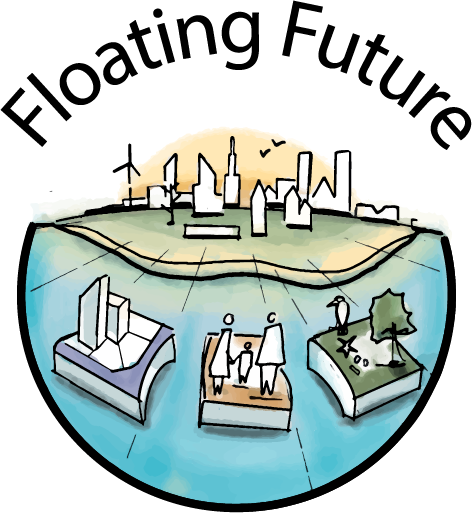About us
The Floating Future research project aims to better understand the pros and cons of large scale floating cities and infrastructure.
Floating Future
Together with a group of partners, we have initiated the Floating Future project to better understand the pros and cons of developing floating cities and infrastructure at a larger scale.
Already many cities situated in coastal areas are vulnerable to sea level rise and at the same time, they have a scarcity of space. Extreme weather events may give rise to high or low water levels in rivers and more space is consequently needed to accommodate big water flows or to store water for periods of drought. In the Netherlands (but also in other deltas around the world) the space for housing and industry is becoming limited due to these developments.
For centuries the motto of the Dutch approach to water safety has been “Luctor et Emergo”, “I struggle and emerge”. This new project aims to take the next step: “I struggle, emerge and… float!”
The Floating Future project is investigating the possibilities of large-scale floating developments as a possible addition to the present-day toolbox of coastal engineering. Floating settlements provide space and at the same time, the water can be used for other purposes. A floating foundation adapts to the changing water level, making it resilient to sea level rise, and can be relocated if needed.
We already see an increase in the number of floating houses in the Netherlands. The next step would be to go from single houses to housing blocks, public spaces (like parks) and floating industry and ports. The Floating Future project was awarded a 5.3 million euro subsidy by the NWO-ORC2022 programme to research the upscaling of floating developments.
This unique project is supported by more than 40 stakeholder organisations in the public and private domain and combines interdisciplinary research with industry and societal partners. With this project we are literally building a knowledge base below the large-scale floating developments of the future. The core of the project is founded on 10 PhD assignments which will study the possibility of floating settlements from the perspective of different disciplines. These disciplines vary from social sciences to economic viability, from legal to technology and from coastal safety to ecology.
